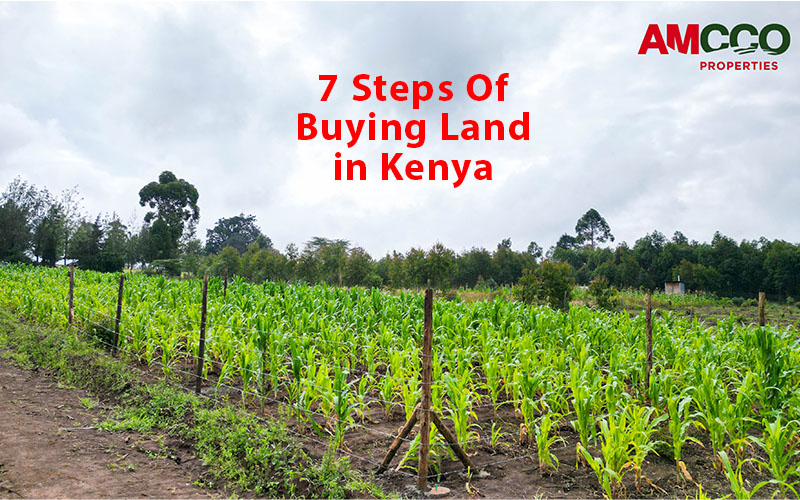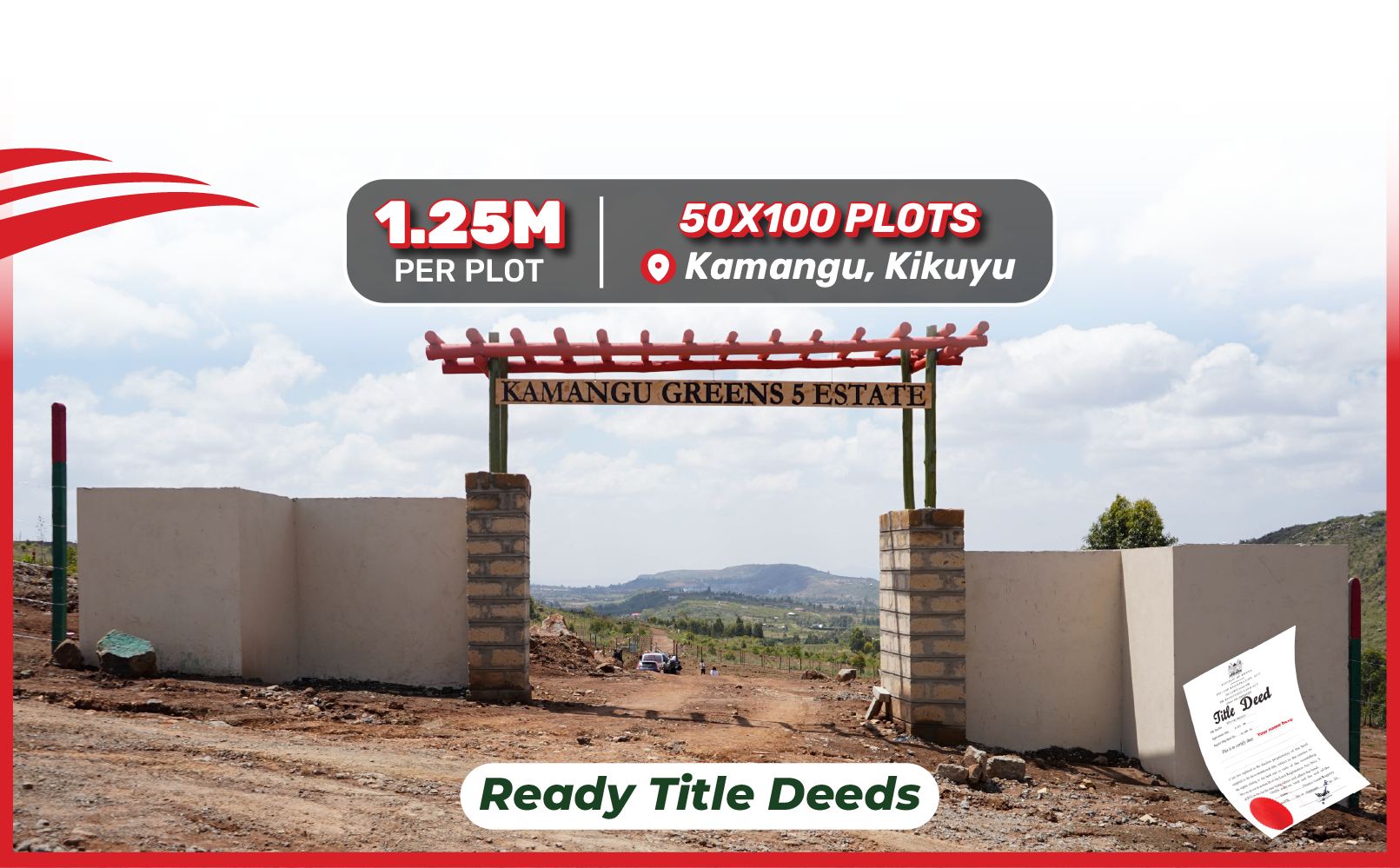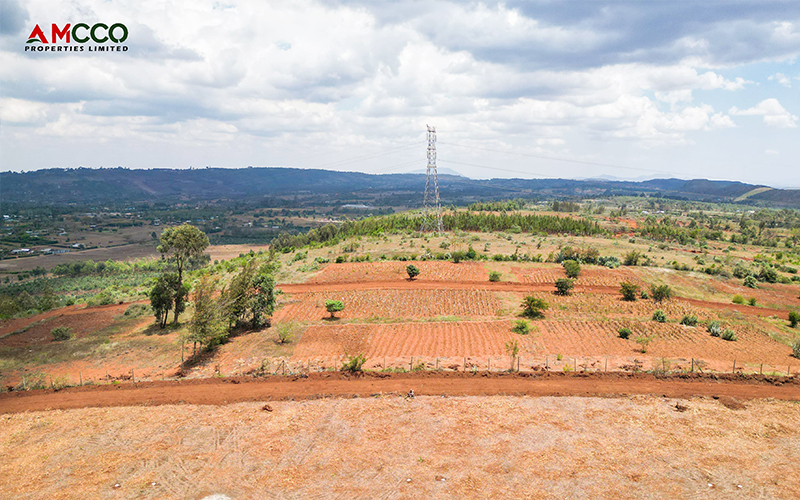7 STEPS OF BUYING LAND IN KENYA
There’s nothing great and better than owning a piece of land that you can invest in and create projects on.
If it is in your dreams to make this possible and a dream come true, then below are some of the steps that I have prepared for you that will help and guide you in purchasing land in Kenya.
Due Diligence
This is basically the investigation or exercise of care that a reasonable business or person is normally expected to take before entering into an agreement or contract with another party or closing down a deal.
This kind of process helps the buyer know that the land actually exists and that it is not a scam.
CLICK HERE TO CHAT WITH US VIA WHATSAPP
It also helps one confirm that the facts that are in the land registrar’s office are the same as those that are on the ground.
It also helps to ensure that the vendor of the property is registered as the real owner of the property.
You can also do an online land search by logging into the e-citizen and signing up.
All you need to do is open the Ministry of Land, Housing, and Urban Development link and select the land search option. After which, you will be required to enter the title number and fill out the online land search form, which you will later submit.
You will be required to pay the $500 amount that’s charged using the available payment methods. After making the payments, you can proceed to print the results or view them on your portal anytime you log in.
Contracting
After conducting the search and the results turning out to be favorable, the purchaser shall request the vendor issue them with a letter of offer as well as the Agreement for Sale.
These documents describe the terms of the Sale and Purchase that have been prepared by the vendor’s Advocate.
Also, Both parties are encouraged to participate in the negotiation of terms such as payment and the period of completion of the transaction.
It is important to note that a duly signed and attested Agreement for Sale sets out the relationship between the Purchaser and Vendor. If the Agreement for sale is not fully signed or the signatures are not witnessed, neither party has the right to enforce the terms of sale.
And when it comes to agreeing on the price, the buyer works hand in hand with their advocates, who then prepare a letter of offer or intent showing the details of what the seller and purchaser agreed on, the description of the property on offer, and the proposed purchase price, all of which will also show modes of payment.
Sale Agreement
The moment both the buyer and the seller agree on a common figure, then comes the closing deal, which is depositing payments. This is usually drafted by the seller’s advocate and presented to the buyer’s advocate for approval.
This is done to ensure that everything is done to the letter.
Upon the execution of the sales agreement, the agreed deposit is paid by the purchaser through their advocate to the seller’s advocate’s account. So basically, the advocates are heavily involved in the whole process.
Clearing Land rates
For starters, these are levies imposed on all parcels of land, and they are payable to the county governments.
After the full payment of all rates is done, a clearance certificate is issued, which acts as evidence that all rates are due and interest accrued has been fully paid.
A land rent clearance Certificate from the commissioner of Lands is also supposed to be acquired.
Upon payment of any outstanding Land rent, if there is any, the commissioner of lands issues a Land rent clearance certificate.
Immediately after the Purchaser and the seller have finished executing the payment process, they move on to the next stage, which is the transfer of documents to the buyer.
The seller has the responsibility of ensuring that all the documents needed for the successful registration of the transfer of the title in favor of the purchaser are available.
And this can only be done when the commissioner of lands has issued a green light over the same; until then, they wait.
Also, in order for that process to go smoothly without shortcomings, the following ought to be availed of:
An original title deed for the Property of Interest.
Fully signed and filled transfer forms
The lessors consent to the transfer.
A valid Valuation report for the property
Land Valuation
The Valuation Department is one of the technical departments within the Ministry of Physical Planning. It is headed by the director of Land Valuation.
The value is determined by comparing recent sales prices in the area with similar features, age, and condition as your property and then adjusting to reflect any differences between properties that might impact the sale price.
The payable duty is determined by a government valuer, and the valuation is done to determine the true value of the land on the open market as of the date of transfer.
Valuation Of Stamp Duty
This tax is levied on property leases at varying rates, depending on the lease duration. The Purchaser has the responsibility of paying the stamp duty tax that’s usually determined by the




